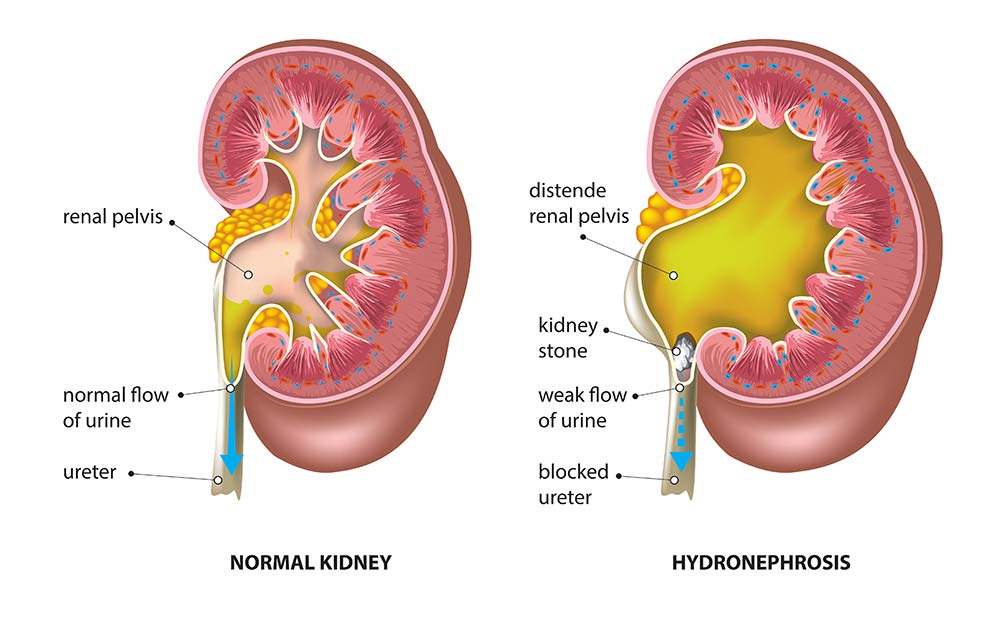General Information
Treating kidney stone disease depends largely on the size, position and number of stones in your system. Luckily, the majority of small stones (0.2 inch or 5 mm in diameter) that are not causing infection, blockage or symptoms will pass if you simply drink plenty of fluids each day. Consuming two to three quarts of water increases urine production, which eventually washes kidney or other stones out of the system. Once they have passed, no other treatment is necessary. The doctor usually asks one to save the passed stone(s) for testing. A cup or tea strainer can be used for this purpose. However, recent studies have suggested that the majority of stones (95 percent) that are capable of spontaneous passage will pass within six weeks. After that time, continued observation is probably not warranted.
Also, the sudden pain that occurs when small stones start down the ureter can usually be treated with rest and analgesics or painkillers. Certain types of stones, such as those made of uric acid, can be shattered with medical therapy. The majority, however, are composed of calcium and are not responsive to medicine.
Kidney Stones Symptoms
- Severe pain in the side and back, below the ribs
- Pain that radiates to the lower abdomen and groin
- Pain that comes in waves and fluctuates in intensity
- Pain on urination
- Pink, red or brown urine
- Cloudy or foul-smelling urine
- Nausea and vomiting
- Persistent need to urinate
- Urinating more often than usual
- Fever and chills if an infection is present
- Urinating small amounts
Treatment for Kidney Stones
Surgery should be reserved as an option for cases where other approaches have failed or should not be tried. Surgery may be needed if a stone:
- does not pass after a reasonable period of time and causes constant pain
- is too large to pass on its own
- blocks the flow or urine
- causes ongoing urinary tract infection
- damages kidney tissue or causes constant bleeding
- has grown larger (as seen as follow-up X-ray studies)
Until recently, surgery to remove a stone was very painful and required a lengthy recovery time (four to six weeks). Today, treatment for these stones is greatly improved and many options do not require major surgery.

